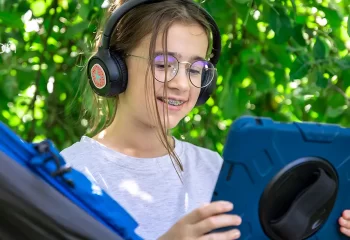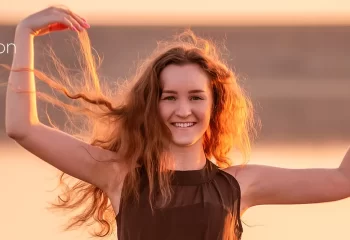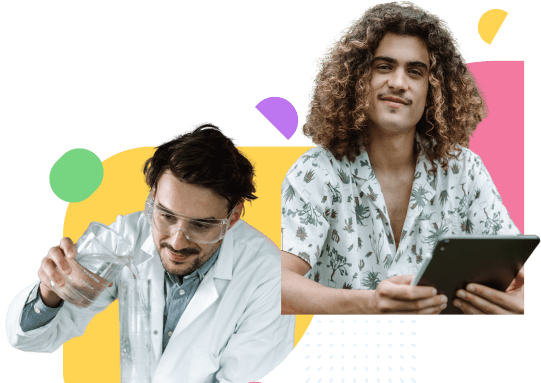We asked four specialists to explain how doing sport helps us and what are the connections between wellbeing and sport.
***
DANIELA GANEA, PE Teacher at Transylvania College
Tell me about your relationship with sports and the connection between sports and wellbeing.
I practice sport since forever. Both of my parents, now retired, were sports teachers. In high school, I did performance sports to facilitate my preparation for the college entrance exam. The values, the times obtained, my performances compared to others have always displeased me. I took them into account exactly until that exam, which was otherwise successful. My relationship with sports has been and is multidisciplinary. I tend to identify with the values of individual sports (skiing, swimming, athletics, roller skating, cycling, climbing). Once every two days I challenge my body to a type of sport in the area of these sports, seasonally conditioned, of course. I love the forest and I love to run its paths, for the leaf, for the mud. I do it “sensory” and I have a partner in this story. That matters and makes a difference. This is how I get my strength and I feel that I have “grown-up”.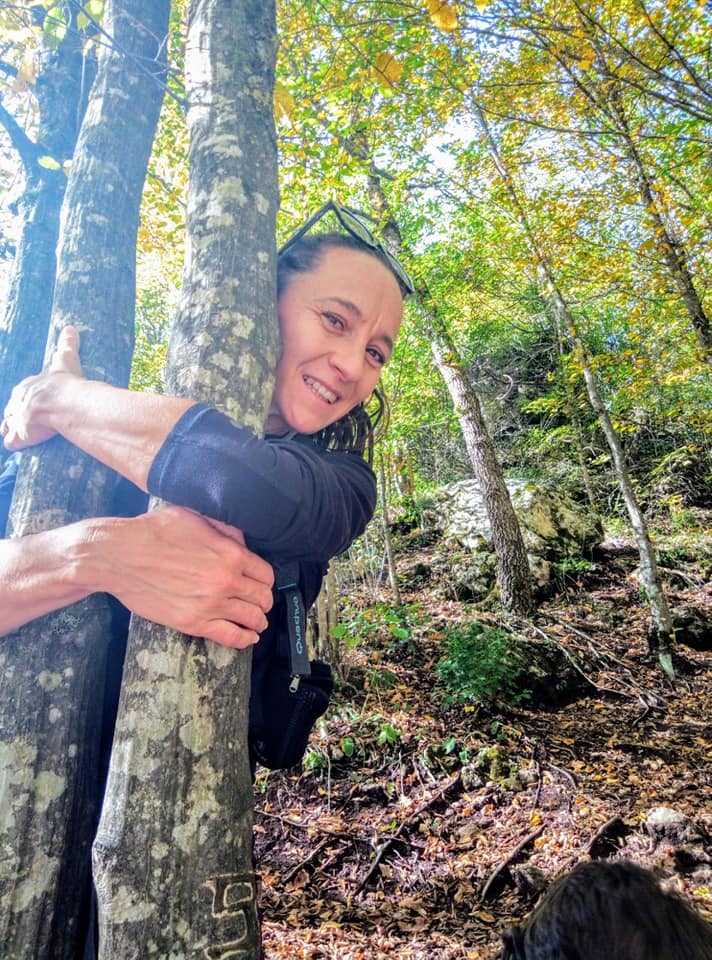
A moment in your life when or after which you were better with yourself emotionally, due to sports?
Sport helped me unleash my anger. If you go through a breakup and you haven’t tried to tun, try it! The physical activity took me out of my comfort zones, out of anxiety, but it also climbed me to some peaks and showed me some dreamy landscapes.
Is there anything else you would like to add about sports and the connections with wellbeing?
For some time I chose the open-air competitions and before the pandemic you could find something organised every weekend. I choose mountain running / triathlon competitions that also have a social impact, fundraising. At least I know that part of my participation fee goes for humanitarian purposes. But here too I participate for the setting, for the atmosphere and not for the final medal, which hangs around your neck anyway. And for some time now I have been choosing to combine physical activity practices with cultural gain. This is how the Danube led me, we – by bicycle, she – on its course, through three European capitals. I was on two wheels when I saw the fortified churches in Transylvania. The Via Ferrata in the Dolomites was all the more impactful as we knew we were crossing the trenches of the First World War. Cultural goals have become a link between sport and seasonal travel. I was told I was inspirational and it was a great compliment. I just learned to enjoy what surrounds me or what I choose to be around me.
***
EMANUEL VASI, PE Teacher at Transylvania College
Tips for parents who fail to convince their children to play sports? Or for parents who can’t convince themselves to play sports?
At the moment, I don’t think I’m able to give advice to my parents, not having children, but if there was one thing I was looking forward to when I was a child, it was my father to call me to play outside. Although sometimes he would snatch me from the computer, I would always have twice as much fun as if I had stayed at home. Looking back, I am very happy that I had a father who took me out to play, sometimes even forcing me to go out, knowing now that it was only for my own good. For parents who fail to convince themselves of sports, I recommend them to try different physical activities, until they manage to find something for them, which brings physical and mental pleasure. Not all sports or physical activities are for everyone, but certainly trying more will be able to find something they like.
What is the connection between sports and wellbeing, between sports and emotional life, between sports and being well with yourself?
A very tight one, for sure! For me, as a child, sports have always been the main activity of the day. I practised performance sports. I was an active child and quite emotionally and mentally stable. Looking back now, I realise that sport gave me the balance I needed to complete my daily duties as a child. There were other times when I stopped doing physical activities and, until I resumed them, the cause of my low emotional and mental state was unknown. Now, after a few years in which I can say that I have managed to balance between sports and everyday life, I cannot let a day go by without moving. In short, sport and exercise are directly connected to our emotional life and wellbeing. The sooner we become aware of this, the more we will be able to enjoy life.
A moment in your life when or after which you were better off because of sports?
I could not now give a concrete example in which I felt better with myself due to sports, being so many examples. Sport is what I come back to every time I feel the need to give myself a little energy and wellbeing.
Is there anything else you would like to add about sports and the connections with wellbeing?
Honestly, the only advice I can give to anyone interested in sports, which I want to give myself on this occasion, is to be consistent. This can be applied by anyone, parents, children, teachers. Don’t give up sports overnight! Sometimes it’s challenging, sometimes it’s hard to motivate ourselves to move, but the more we do it and the more consistent we remain, especially in the beginning, the faster it will become a pleasure. And from that point, you will never give up.
***
ALINA LUPEȘ, Specialist at Mind Education
What is your profession and what does it entail?
I am part of the Mind Education team, where I facilitate mindfulness and vitality programs, with a focus on the connection and the mind-body-emotion unit. The concern also comes from my experience in contemporary dance, where I focus on somatic and awareness practices. In the artistic context, I discovered the huge human and therapeutic potential of these experiential practices. Already working with my colleagues from Mind Education, I decided to bring the two worlds together, through these learning contexts.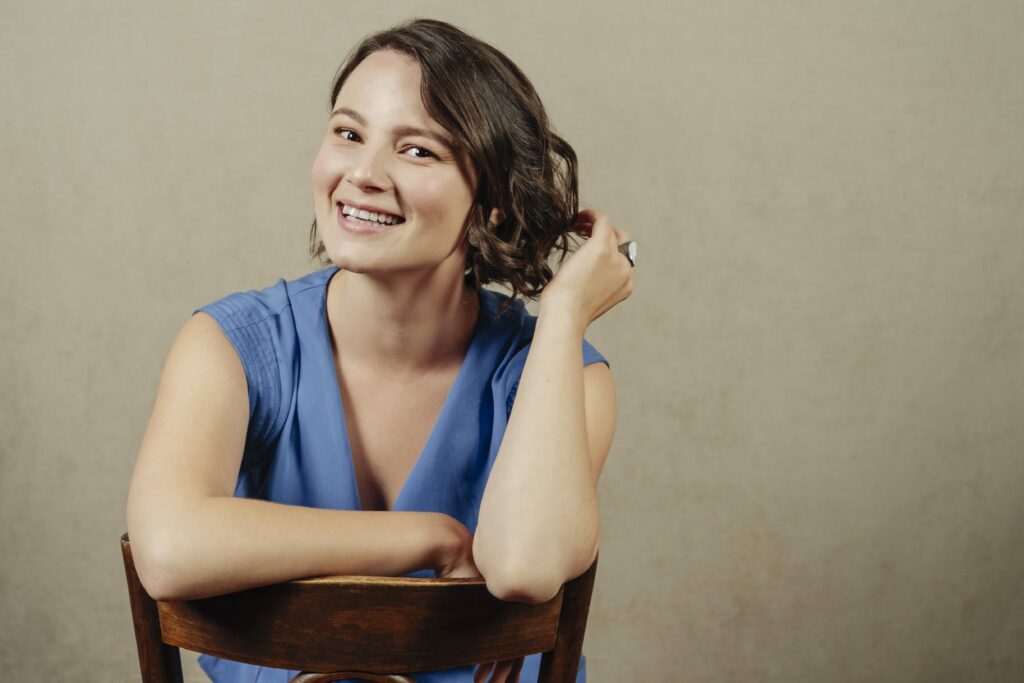
What is the niche you are targeting and what recommendations do you have for the summer period?
I recommend people over the age of 12 to explore and discover their bodies and mind. They can experiment with anything, from authentic and conscious physical activity, somatic experiencing, Body-Mind Centering, Experiential Anatomy, dance therapy, and creative therapies, bodywork, massage and self-massage, contemplative dance, yoga, hiking, contemporary dance, tai chi. I suggest that they explore these practices without aiming for immediate physical, mental, or emotional progress, but only for the purpose of discovering their own sensations and feelings. Progress will come naturally, by default. With total involvement while practicing, but with relaxation.
Tips in general for parents who fail to convince their children to play sports? Or for parents who can’t convince themselves?
I don’t think anyone needs to be persuaded to do sports because we naturally like physical activity. It is part of our roots and instincts. If, however, our instincts are asleep, I recommend you try several options. Don’t stop exploring until you find the activity that charges you, unloads you, makes you feel good, full of life.
What is the connection between sports and wellbeing?
I can’t separate my well-being from physical activity and body. Pure joy and vitality come from enjoying simple moments. Enjoyment takes place through the senses, whether we are talking about feeling the taste of a strawberry, a massage, a lovely song, an image, or a smell. Then, if I am disconnected from my body, I am disconnected from my deep needs and much more prone to defense mechanisms or substitutions for what I really need, whether we are talking about love, vitality, or autonomy. Disconnected from what is important to me, I go through the same cycles of unhappiness. And, as an immediate reward, after 20 minutes of physical activity, the body begins to naturally secrete endorphins, the hormone that makes us feel good. And let’s not forget, touching makes us feel safe. It is important to stop the activity in the neocortex from time to time and to feel more. In fact, we think better and are less reactive when we are present in the body. Stress is regulated by physical activity, and interoceptive attention (our ability to feel the sensations inside the body) correlates with the ability to emotionally self-regulate.
A moment in your life when or after which you were better with yourself, emotionally, due to sports?
I exercise a lot in nature, whether I am in Bucharest or Moinești, where I spend a lot of time in the forest and on the hills. I am a person who feels a lot and I try to let myself feel. If I have moments when I feel confused or overwhelmed, to feel the connection with the earth takes me out of my thoughts and brings me to the concrete reality of touching and supporting the earth. I shift my attention from thoughts to what I feel in my body when I walk, to sounds, colours and shapes from nature, which creates space for emotions to be felt and the tension in the body to discharge. I start listening to the messages in my body and doing stretching, yoga, massage or just any physical activity I feel is good for me at that moment. That’s how I recharge and I that’s my practice of transformation every day, because, like most of us, I have daily challenges.
Is there anything else you would like to add about sports and the connections with wellbeing?
My advice is to start from where we are, with what we are now: with our fears, with our desires, with our sensibilities. When people see that what they are is enough and start working from there, magic happens. We open the door and see the possibilities.
***
RAUL LUPAȘ, Specialist at Mind Education
You are a clinical psychologist and psychotherapist in Mind Education, where you coordinate the Corporate department.
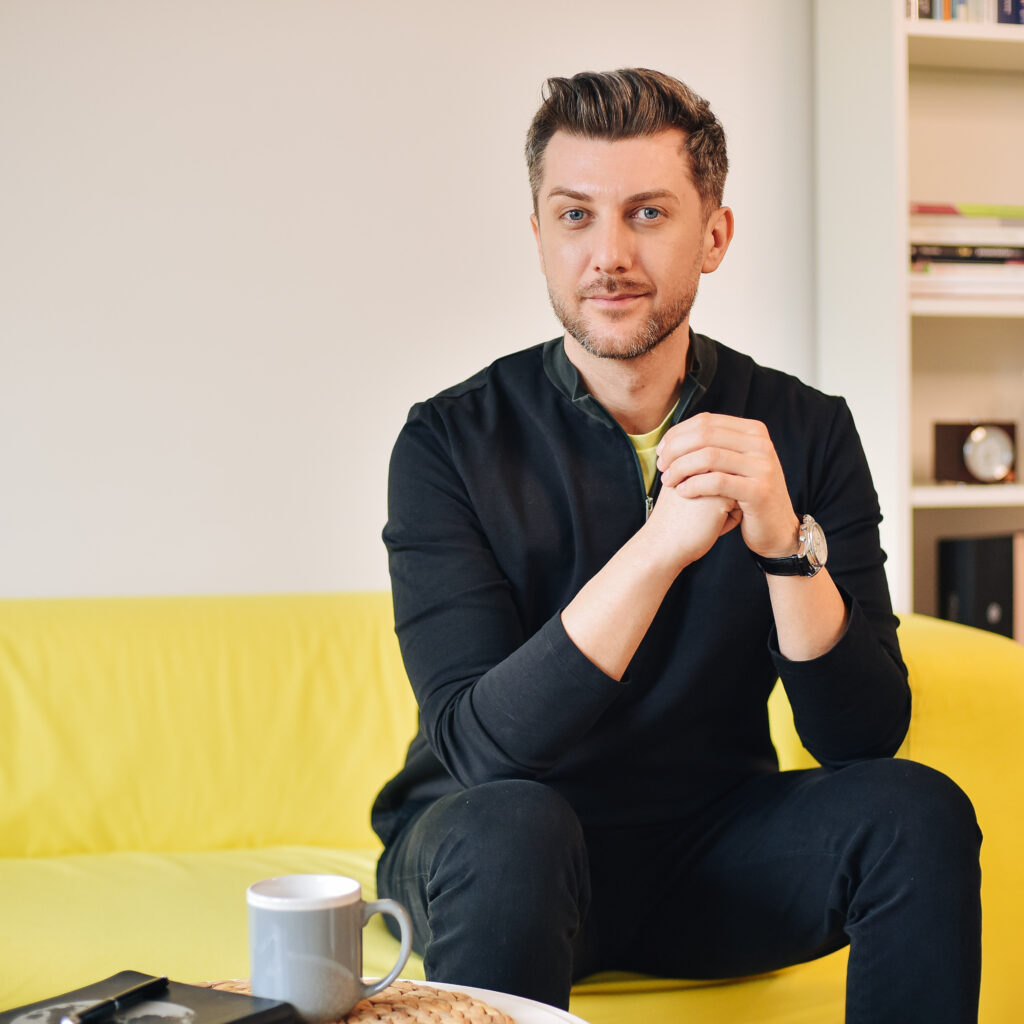
Tell me about the importance of sport from your point of view and about the connection between exercise and wellbeing.
In most of the texts, of the courses, but especially inside the cabinet, I bring up sports. Its benefits are many and I think the biggest motivator is that I practice it since I know myself. This helps me feel authentic and congruent in the proposals I make to those I work with. Although research into the benefits of the sport began several decades ago, the greatest growth in science began in the 1980s and 1990s, today with a huge amount of scientific evidence linking sport to positive effects on physical health, emotional, quality of life and general wellbeing.
First of all, the sport has a protective role against the most common chronic diseases, such as cardiovascular diseases, diabetes, cancer, obesity, osteoporosis. Sport influences the good functionality of organs and bones, heart rate, lung function etc. Secondly, the sport has a beneficial impact on psychosocial health issues. The World Health Organization estimates that at least a quarter of people who visit medical facilities have a mental or behavioural disorder. The most common forms of disorders are those in the category of anxiety (social, general, phobias, panic) and depression.
Humanity is facing a huge epidemic of depression. More than 300 million people suffer from depression, the leading cause of global disability. The costs of depression are huge. We are talking about a trillion dollars a year lost due to depression. Part of the causes is disconnection and lack of physical activity. The literature is significant and shows that sport has a positive influence in combating depression. Starting from biological rebalancing, by stimulating hormones and neurotransmitters beneficial to mental health (such as serotonin and dopamine), to issues related to body image, self-esteem, good relationships with others, creativity and optimism.
I would ask you to detail how you, as a psychologist, see the relationship between anxiety and sports.
When we talk about anxiety or unhealthy stress, it is necessary to include here a mind overcrowded with thoughts, most often negative. The person uses more resources than would be optimal, and the body and mind react in various ways. Some substances are released that cause discomfort, emotions or psycho-somatic states appear, such as accelerated heartbeat, stomach pain, muscle cramps.
Sport has a beneficial effect on fighting anxiety in many ways. On the one hand, it helps the person to disconnect, to take a break from the multitude of thoughts. That means fewer negative thoughts. Sport also reduces those substances in the body called stress hormones, while stimulating substances that make us feel good. Sport helps people gain more confidence and expose themselves to beneficial social situations.
What sport would be suitable for children?
The recommendation for children is that the sport is adapted to age and temperament. There are children who need a more intense sport, and others who like lighter sports. What we all need to know is that sport is very beneficial for children. It helps them in the good development of their physical abilities, it improves their self-esteem, it creates the beneficial space for the development of relationships with others, it helps them to organise and become autonomous. Sport is also a good way for children to learn to manage some uncomfortable emotions, such as anger. Anger is an emotion like any other, with its structure and benefits. It becomes problematic when the young person does not have the necessary tools to express it. From here, various behaviours appear, socially and sometimes medically inappropriate. Sport, therefore, is a good way for them to learn to adjust their emotional feelings and balance.
A universal recommendation I make, especially since we are going through this different and restrictive period, is to practice yoga. It can be practised from a very young age, and the benefits are multiple (according to the International Journal of Yoga, 2011): increased flexibility, improved breathing and vitality, combating stress, increasing performance, protection against injury, correcting posture.


